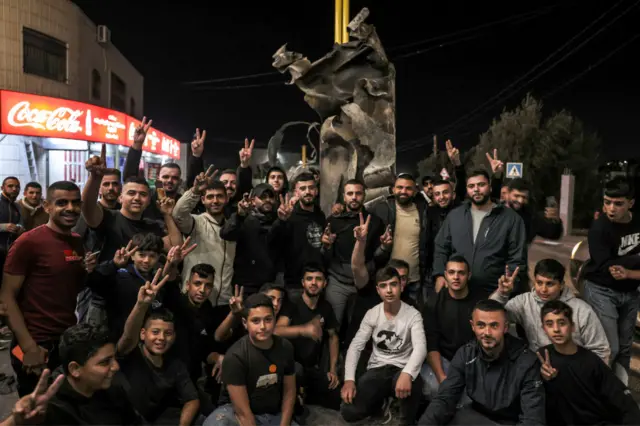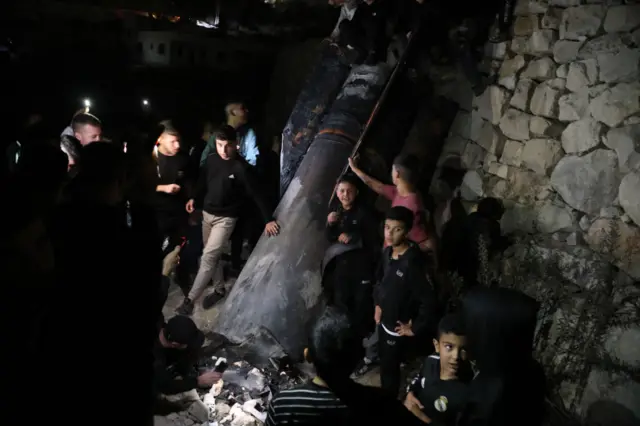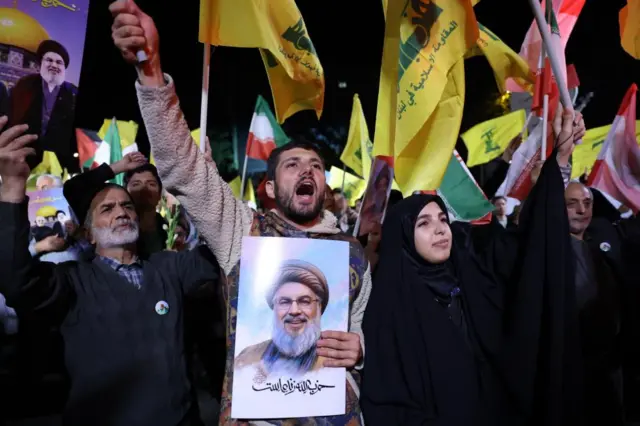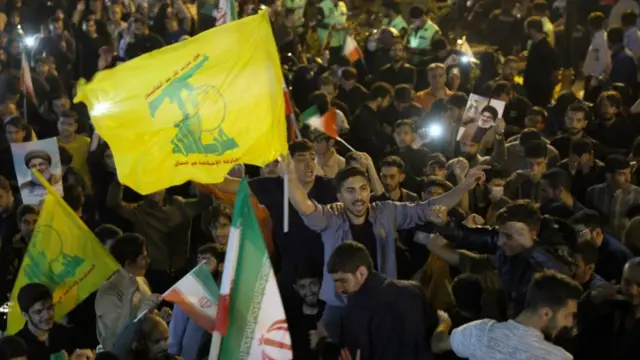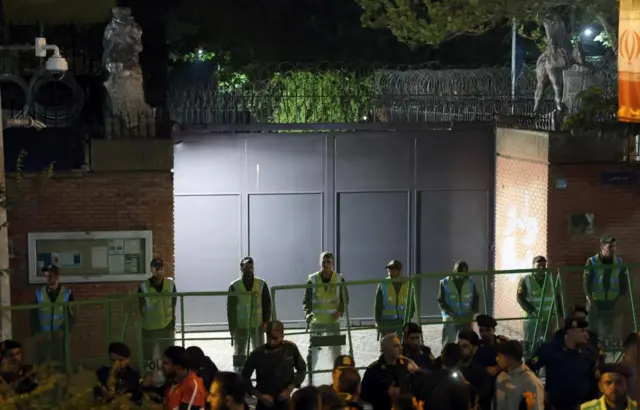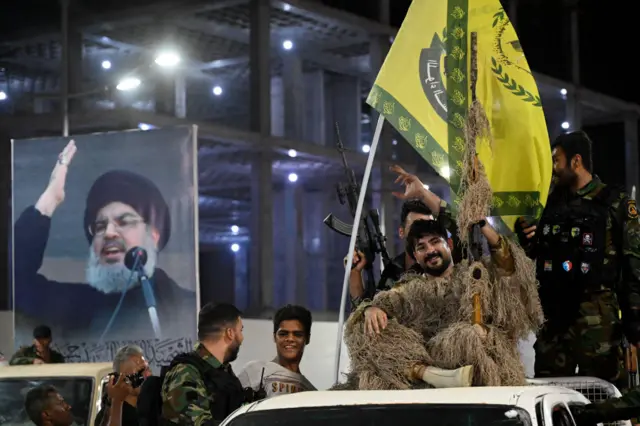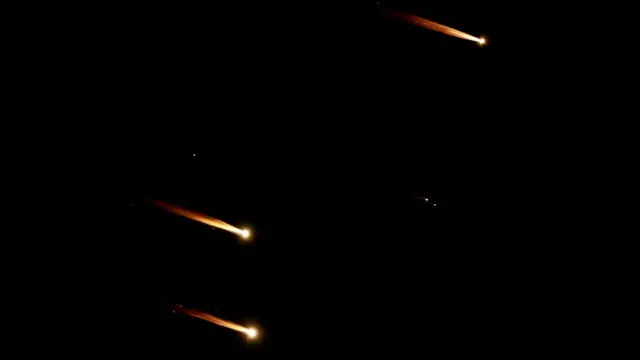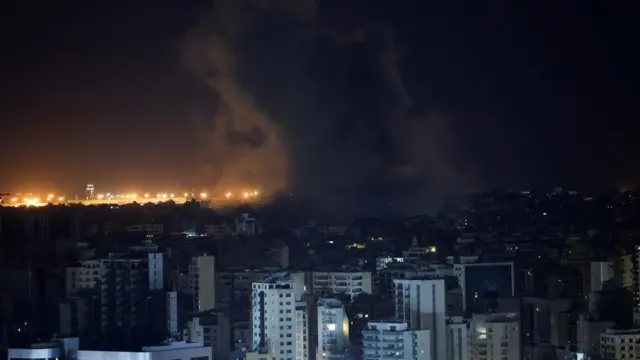Tensions build in Middle East as attacks continuepublished at 06:15 British Summer Time 2 October
As a new day begins in the Middle East, here is a recap of some images from yesterday's conflict.
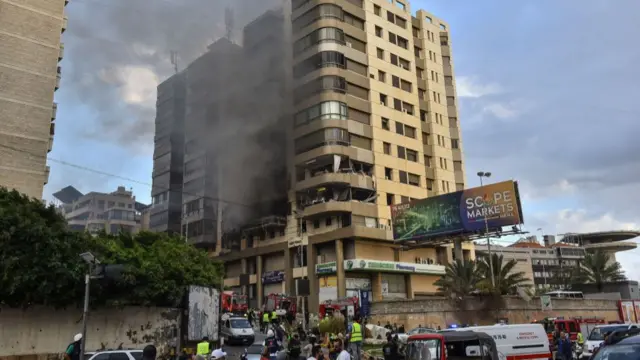 Image source, Getty Images
Image source, Getty ImagesBuildings in Beirut were hit in an Israeli airstrike
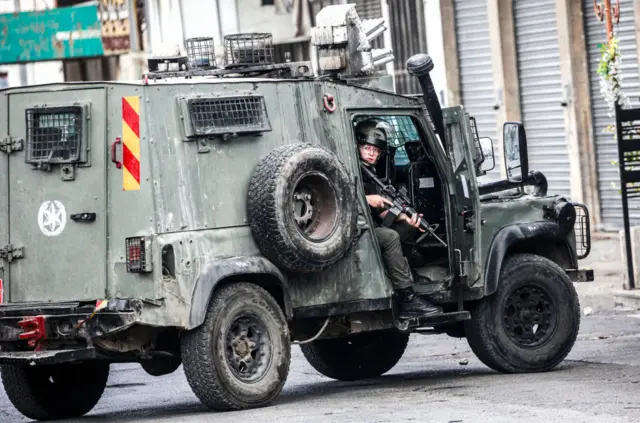 Image source, Getty Images
Image source, Getty ImagesIsraeli troops were also seen operating in the West Bank
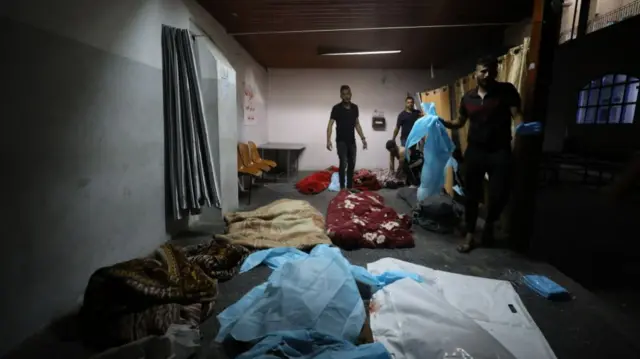 Image source, Getty Images
Image source, Getty ImagesIsraeli aerial bombardments continued in Gaza, killing several people including children
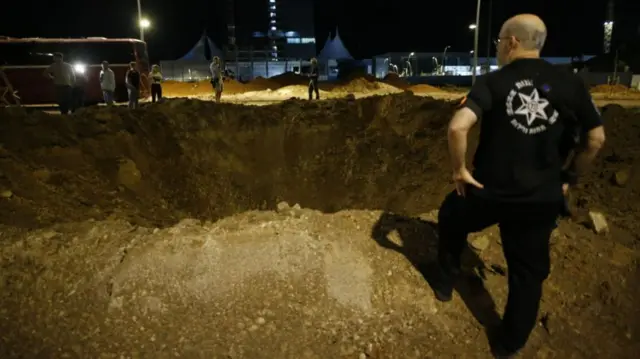 Image source, Getty Images
Image source, Getty ImagesThe Iranian missile strikes left a large crater in a suburb of Tel Aviv
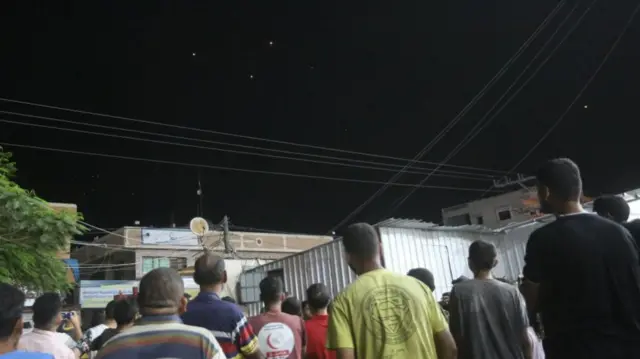 Image source, Getty Images
Image source, Getty ImagesPalestinians in Gaza watched the Iranian missile barrage


